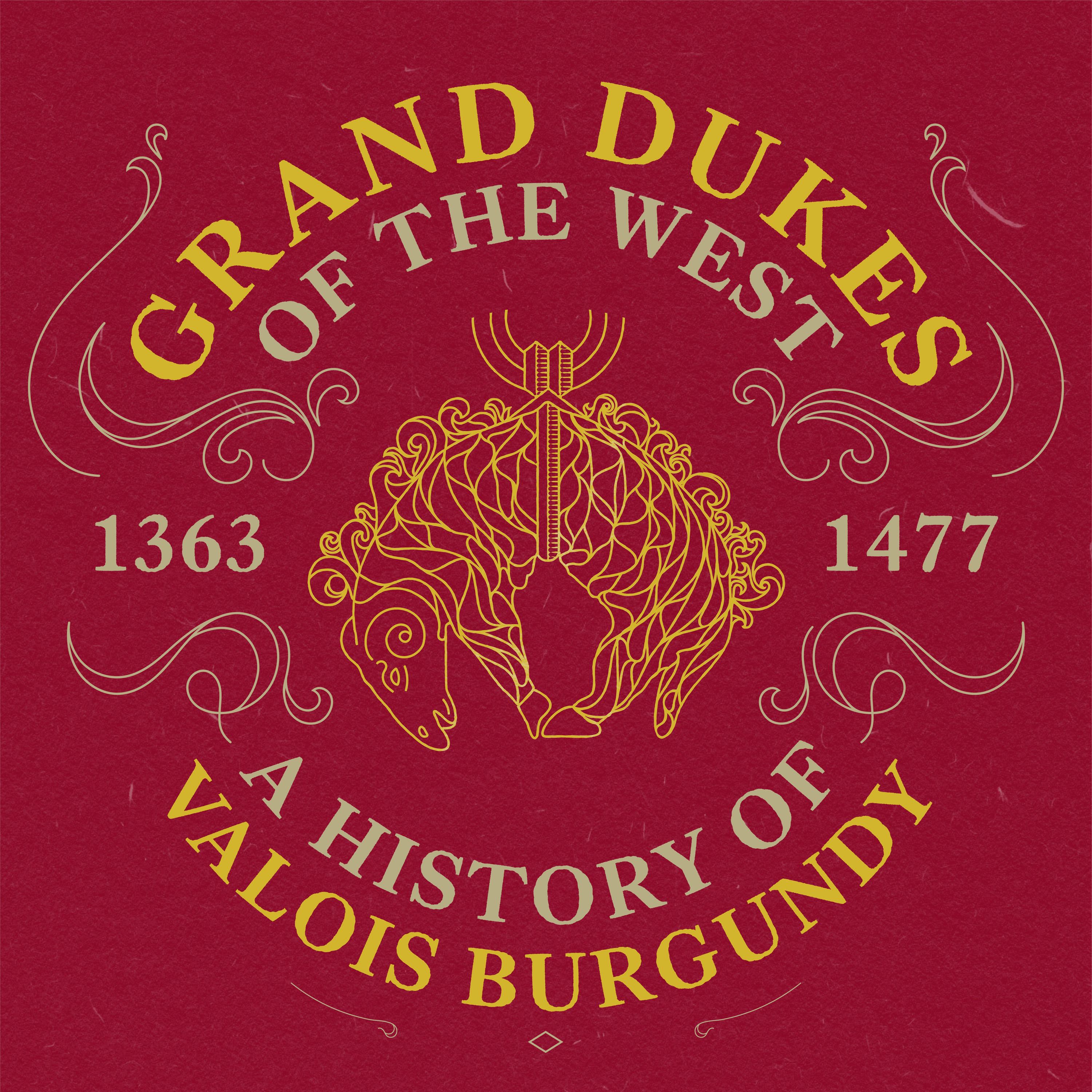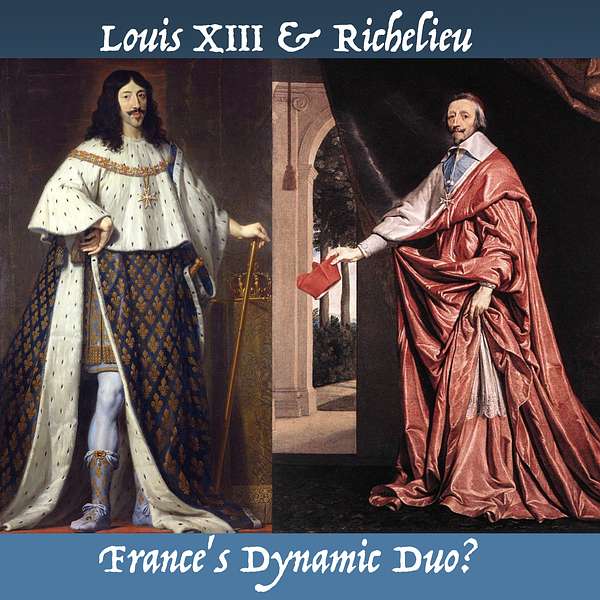
La Fayette, We Are Here!
La Fayette, We Are Here!
Richelieu and Louis XIII, France’s Dynamic Duo?
King Louis XIII and the Cardinal de Richelieu. These two men are quite important and deserve to be better known. The Cardinal is probably the most known of the two, because of his policies, wars and his long lasting impact on French institutions and Europe's destiny.
Louis XIII is often perceived as the weaker of the two, the king who merely signed his minister's recommendation. But history is never quite that straightforward, that easy. It is under these men that France will become an absolute monarchy and will begin her rise as Europe's dominant power. Louis XIII's son, Louis XIV will complete his father's work and become Europe's most powerful monarch.
Join me as I discuss the Just king and the famed red eminence, France's dynamic duo!
Timecodes:
Introduction
04:13 - Bloodied France
09:47 - The Red Eminence
13:48 - The Phoenix Rises
19:56 - The Great Partnership
26:28 - A Reinforced Kingdom
33:40 - France and the World
38:31 - Conclusion
Music: Marche pour la cérémonie des Turcs, composed by Jean-Baptiste Lully, arranged and performed by Jérôme Arfouche.
Artwork: Louis XIII in coronation costume and Portrait of Cardinal Richelieu. Both by Philippe de Champaigne.
Reach out, support the show and give me feedback!
Have you ever read "The Three Musketeers" by Alexandre Dumas? You are probably familiar with the famous swordsmen Athos, Porthos, Aramis and their young friend, D'Artagnan. But do you recall the era they lived in, the masters they served and fought? They served under king Louis XIII and his State minister, the Cardinal de Richelieu. These characters, inspired by real men who served in the 1600s, take us in a world of adventure, mystery and deception where the puppet masters often are the king and his minister. The novel regularly portrays the two men as adversaries, or at least, as disagreeing on matters of State.
But how did this relationship work? In his memoirs, Richelieu wrote quote: "La politique est l'art de rendre possible le nécessaire." Or "Politics is the art of making what is necessary possible." That is the phrase of a clever, cold and determined man. Louis XIII once said "J'aime mieux être ridicule aux courtisans que lourd au peuple." Or "I'd rather be ridiculous to the courtesans than cumbersome for the people". That is the phrase of a sensible and sensitive king. Were they really like that? The cold minister and the warm king? The calculating one and the emotional one? A simple binary equation? Or were they two complicated fellows, who tried their best and acted as they saw fit?
I couldn't do Louis XIII without Richelieu and vice-versa, so I will tell both their stories together, side to side. Because it is side to side that they transformed France, Europe and even the world. Join me as I discuss the Just king and the famed red eminence, France's dynamic duo!
Welcome to "La Fayette, We are Here!", the French history podcast for the American public, by a Frenchman! I am your host, Emmanuel Dubois, and today we are talking king Louis XIII and the Cardinal de Richelieu. These two men are quite important and deserve to be better known. The Cardinal is probably the most known of the two, because of his policies, wars and his long lasting impact on French institutions and Europe's destiny. Louis XIII is often perceived as the weaker of the two, the king who merely signed his minister's recommendation. But history is never quite that straightforward, that easy. It is under these men that France will become an absolute monarchy and will begin her rise as Europe's dominant power. Louis XIII's son, Louis XIV will complete his father's work and become Europe's most powerful monarch. Since we are speaking of monarchs, let's begin our tale with king Louis XIII and his kingdom.
Before going any further, I want to apologize for this delayed release. This episode was planned for mid September but real life got in the way, and then I got bronchitis just when I was ready to record. Not ideal as you can imagine. But I’m better now, ready to take you to Seventeenth century France. So let’s dive in, mes amis.
Bloodied France
The second half of the sixteenth century had been rather troublesome for France. For those of you who have listened to my episode on king François I you probably know what I'm referring to: the Wars of Religion. Although François wasn't caught in them, it is under his reign that protestantism grew in France, and so did the repression by the authorities and the Church. It culminated in a civil war that tore France apart from 1562 to 1598 under the reigns of Charles IX, Henri III and Henri IV. In April 1598, king Henri IV proclaims the Edict of Nantes, according freedom of religion to the protestants in parts of the kingdom. He put an end to the Wars, but not to the feud. Let's digress just a little bit about Henri IV, Louis XIII's father, shall we?
Henri was born Henri de Bourbon and was not the king's son. He was a relative and a descendant of king Louis IX. He was also king of Navarre and... a protestant! Before dying, Henri III designed de Bourbon as his successor and he became Henri IV of France in 1589, while still being king of Navarre. Henri is therefore the first Bourbon king, the line that will continue until Charles X in 1830.
He quickly converted to catholicism and worked to end the war. As I said he succeeds but he will pay his success dearly. Being judged too indulgent by some catholic extremists, he is killed by a catholic fanatic, François Ravaillac who stabs him to death on May 13th 1610. He does have issue though and his son Louis becomes king Louis XIII, he's not even nine year old. His mother, Marie de Médicis, is Queen Regent during her son's minority.
His first few years as king are typical of a regency. His mother and her ministers run the show while Louis basically deals with his education and protocol. He marries in 1615 with Anne d'Autriche, or Anne of Austria who is, as you might have guessed, a Spanish princess... Thank the Habsburg for this kind of thing, but I digress. Both are the same age, 14, and are expected to bring France and Spain, two rival kingdoms, closer together. But Louis has other issues to deal with in his own court.
Louis is pugnacious and has a temper. He's also surrounded by people he loathes. His father had many bastard sons and they live with him. He totally despise them and keep reminding who he is and who they are. He insists on his superiority but is often rebuffed by his mother's entourage: the Italians. His mother's real name is Maria de' Medici from the famous Florentine family. The Medici family was linked to the French kingdom, Catherine de Medici having been Queen of France while Henri II was king and then being the mother of three French kings! François II, Charles IX and Henri III. Quite the record!
Italian intellectuals and rich families were very popular in France since the Renaissance. They were considered the most educated and refined people in Europe, especially the Florentines. Louis is deeply traumatized by his father's brutal death and at the same time, he doesn't get much love from his mother or her entourage. He waits patiently until he's 16 years old. One day, helped by his favourite, the Duke of Luynes, he acts. He has his mother's favourite, Concino Concini assassinated and his mother is removed from power.
The Queen regent leaves and heads to Blois. She is not alone, her associates go with her or at least leave the court. In the Louvres palace, king Louis meets the Foreign Affairs ministers who had rose to this position thanks to the Queen Regent. He's also a clergyman and Grand Almoner to Anne d'Autriche. Louis tells him: "I am freed of your tyranny!". The man he's talking to is Armand Jean du Plessis de Richelieu, soon to be the Cardinal de Richelieu.
The Red Eminence
Richelieu comes from a noble family on his father's side, one that had been close to Henri III and Henri IV. His father had been captain of the guard for both kings. His life goes back and forth between the family affairs and his education as a clergyman. He receives a very complete education, learns various languages and shows signs of a remarkable intelligence from a very young age. His family had received the bishopric of Luçon and soon Richelieu will be known as the bishop of Luçon. For those who don't know, Luçon is a town located between Nantes and La Rochelle.
Our young Richelieu is impatient. He makes his title of Bishop official by paying a visit to the Pope in 1606 and his ambition is growing. Richelieu is only 21 years old by then but he shows his temperament as soon as he's in charge of his bishopric. He works tirelessly and transforms everything he touches into a success. He lies his way when he needs to, he impresses when he needs to, he charms when he needs to. He's the perfect politician, and one with brains for a change! He doesn't seem to care much for riches, he really works to improve Luçon and he succeeds. When he could have left for bigger and fancier places, he stays to finish his work. He also has his sights on a much bigger prize: Paris.
He gets noticed by the court for his efficiency and the gentle way in which he tries to convert the pockets of protestantism to the, quote and quote, "true faith". When Henri IV is assassinated in 1610, Richelieu is drawn by the power vacuum. He works his way to get closer to the Queen regent, helped by his family's contacts and other friends. His only mistake is that he wants to get there too fast. He is impatient and becomes close to the queen's favourite, the famous Concini who I mentioned earlier.
Richelieu manages to play an important role in the Estates Generals summoned in 1614 by the French crown. They are a sort of reunion of the three French Estates: the nobility, the clergy and the third estate, the vast majority of the population. The idea is basically to discuss the problems of the day and to see of the various branches of power can work around them. In other terms, it's a tool for the ones in power to gain even more power. Richelieu shines as a brilliant diplomat who manages to make the clergy and the nobility work together to help absolutism come about. By the way, the next convocation of the Estates Generals will be in May 1789, with dire consequences for the Monarchy...
Marie de Médicis is impressed and that's when he's made Grand Almoner to the young queen Anne. In November 1616 he becomes Minister of Foreign Affairs, one of the key roles of the French government. But as I mentioned, he is caught in the Queen Regent's downfall. The king mocks him in the Louvre's corridors. What will allow this 30 year old has-been Bishop to come back and become the most powerful man in France with the king? Stay with me my friends, and you shall find out.
The Phoenix Rises
In 1617, Louis is in power, aided by his own favourite, the Duke of Luynes. But there is a problem. Luynes exercises a lot of power thanks to the trust Louis puts in him, but he is not up to the task. He is not totally incompetent but he faces many challenges, situations that require more than mere goodwill and favouritism. They require intelligence, flair, quickness of decision. Luynes doesn't have these qualities, and his repeated failures to deal with France's issues tarnish his image and the king's.
Luynes will be in charge until his death in 1621 and will have a deep impact on the rest of our story. First, he instigates a strengthening of Catholic power in France. He wants to diminish the Protestants' power, make France religiously whole again. Louis is favorable to that of course, and so are his other councillors. This starts a chain of conflicts that will escalate during the 1620's and 30's. But something else happens in 1619 that completely changes the course of Louis's reign.
As I said earlier, his mother Marie de Médicis is in Blois, she is actually held captive in the castle there. On February 22nd, 1619, helped by loyal men, she escapes with a rope ladder. She then proceeds to mount a rebellion against her son, the king. She is supported by some of the great nobles of the kingdom, who consider the king ineffective and his councillor Luynes to be a sycophant.
Seeing this, Luynes realizes that he need someone to negotiate a truce. Someone smart that the Queen mother would trust. That someone, is Richelieu. He manages to negotiate the Angoulême treaty, between the king and his mother, in April 1619. Marie will try her luck again in 1620, fomenting another rebellion against the king, but it is vanquished and she has to bend the knee and come to another agreement. Richelieu manages to surf that dangerous wave and to emerge unscathed with the reputation of a solid politician and an agile diplomat.
Luynes dies of a fever in December 1621, leaving the country in the middle of more religious fighting, notably in the south. His troops were defeated at Montauban by French Protestants just before his death and his reputation is tarnished even further. King Louis is between a rock and hard place. His right hand man failed over the last few years to establish peace and strengthen catholic and royal power in France. He's now dead, and Louis has no choice but to turn to his mother for counsel and support. She provides both and tries to reestablish her control over the king, being an integral part of the Conseil du Roi, the king's Council. While the king and his mother try to work together, Richelieu lurks around and works to rise in this new structure. He has ideas for himself and for his country.
Louis XIII also has ideas, some regarding the structure of the military. In 1622, he decides to reorganize a corps formed by Henri IV known as the chevau-léger de la Garde, or the Gard's Light Cavalry. He decides to create a new corps, one of infantrymen armed with muskets. They'd have to be elite soldiers, young, and mostly from Gascony and Béarn, southwesterners that his father, the king of Navarre, favoured. This corps is the famous Compagnie des Mousquetaires du Roi, the famous French Musketeers. If Dumas' tales are very much romanticized, their are entrenched in historical reality. These men were indeed elite warriors and served the king during several battles in the seventeenth century. They also wore absolutely awesome uniforms and probably earned some victories just by completely out-styling their foes, but that's just my opinion. Anyhow, lets get back to our two protagonists.
In 1624, supported by the Queen Mother, Richelieu enters the King's Council. Louis is unsure at first, but Richelieu has qualities that the king perceives. Marie de Médicis maneuvered to have him made Cardinal in 1622 and this gives him prestige an authority. He also clearly wants to make France a unified catholic country, a vision shared with Louis. France was at war with Protestants within her borders but also without, most notably with England, on a regular basis. Richelieu wanted to solve the inner fighting to better oppose France's foes abroad. Him and king Louis would work together for almost two decades towards that goal, and they will produce great results.
The Great Partnership
Contrary to popular belief, king Louis XIII was neither weak nor indecisive. He didn't just say to Richelieu "go govern France for me" to go back to the Louvres to enjoy delicacies. He took an active part in crushing his enemies, reinforcing his power, expanding France's border, modernizing her institutions and increasing her presence on the world stage. He did it in tandem with Richelieu, but the two men worked together, not in silos. Louis was simply smart enough to know when to leave Richelieu alone and to trust him completely. And Richelieu knew what the king wanted or needed. They were in symbiosis.
Richelieu was deeply convinced that as long as parts of France were under Huguenots control, there would be no peace or stability in the kingdom. For those who don't know the Huguenots are the French Protestants. Luynes had try and failed to submit them as we saw. Richelieu will try again, but he won't fail. He mounts campaigns against the Huguenot strongholds in France. In that sense, he takes part of a European movement known as the Counter-Reformation, the Catholic counter attack to the Reformation of the previous century.
The most remarkable of these campaigns in my opinion is the siege of La Rochelle, this French city on the Atlantic coast. It was a Huguenot stronghold and actually demanded independence from the kingdom in 1621. La Rochelle had clear links with England and other Protestant powers, like the Low Countries, and Richelieu feared that. He was also busy rebuilding the French fleet to oppose these maritime powers on the seas and to better support the French colonies, notably New France. In 1627, the Duke of Buckingham lands on the Île de Ré, close to La Rochelle, with 8,000 men. The English want to help their Protestant brethren and also to prevent the French kingdom from taking control of the city and its great port.
Richelieu reacts swiftly and decisively, besieging the city and fortifying the region. During the next year, three English fleet will try and fail to break the siege. The French royal troops had built a 1,500 meter long dyke to block access and had canons pointing at the sea. After a year of this, the city surrendered. Thousands of Rochelais paid for this strife with their lives and the city was in ruins. But Richelieu had won and the king's authority was reinforced. That is what both men wanted.
Both kept at it, notably by being unwavering and ruthless agains those who opposed the king, even in small ways. Nobles were arrested or executed. Nobody was above the king, nobody could contradict his authority. Louis was becoming an absolute monarch, in large part thanks to Richelieu.
The cardinal also had plans for France's power in Europe. He believed in France's natural borders, all the way to the Rhine in the north, the Alps in the south, etc. He also thought that the Habsburg were France's greatest foes, even though they were Catholics and Queen Anne was one of them. François I had fought Emperor Charles V a century prior and not much had changed. The big difference, is that some neighbouring countries were now protestant powers. Richelieu used that to his advantage. He was willing to ally with these Protestant States to fight the Habsburg, something the Queen Mother and her quote and quote "Devout party"despised. This leads to a confrontation in the fall of 1630.
Louis had been very ill for weeks. He was afflicted with fevers and dysentery. Many feared for his life and Queen Marie though that Richelieu was taking advantage of Louis's weakened state. Richelieu was taking risks in European politics, playing the long game, making France's enemies fight each other, the Queen mother and her councillors feared this. In November, she makes her move.
On November 10th, she confronts the king and demands that he sacks Richelieu. The Cardinal arrived at the Palais du Luxembourg, were the king and his mother were meeting, and she totally erupted. Richelieu tried to sooth her, even kissing her hand and weeping. She told the king: "Do you prefer a lackey to your own mother?". Louis was completely flabbergasted and shocked. The king then left for his hunting lodge at Versailles to mediate. At this moment, Richelieu thought he was done.
With that in mind, Richelieu took a risk. He followed the king to Versailles to plead his cause. He is welcome by the king who had time to think. He tells the cardinal: "I am more attached to my State than to my mother." He then proceeded to arrest his mother and her candidate for the ministry, the marshal Louis de Marillac. This day is known to French history as the Journée des Dupes, the Dupes Day. Queen Marie de Médicis would never have political power again. Richelieu would never leave it.
A Reinforced Kingdom
The Cardinal de Richelieu is now firmly in place and works closely with king Louis XIII. Both men are now at the top of their game and face the following situation. Internally, they need to keep reinforcing the monarch's authority, to prevent further revolts and squash some high nobles' ambitions. In Europe, they need to decide what to do with the growing conflict in Germany, more on that in a bit. And globally, they need to help their colonies grow to rival the Spanish and English colonial empires. Quite the agenda!
Let's first address the internal situation. Richelieu's rise to power was not to everyone's liking. The most important of those who would work to destroy Richelieu is Gaston d'Orléans, the king's brother. Until the birth of Louis in 1638, Gaston is heir presumptive to the throne of France, a position that makes him virtually untouchable. Gaston was against the absolute monarchy, he wanted the king to work with the high nobles of the kingdom. Basically, he wanted to maintain the status quo that Richelieu was working so hard to upend.
From 1630 to 1635, he helped important noblemen mount conspiracies against the Cardinal, notably Henri II de Montmorency, governor of the Languedoc, admiral of France. Found guilty of treason, and even betrayed by Gaston d'Orléans, the famed admiral is executed to set an example. Richelieu and Louis will keep having a hard line during the reminder of their rule, making sure that the nobles got the message. The king's authority is supreme, those who contest it will pay that crime of lèse majesté with their lives. The message got through and even though they'll have to face some other smaller conspiracies, they controlled the great nobles of the kingdom.
Richelieu also worked to modernize the French institutions, not just the status of the monarch. A prime example of that is the creation in 1635 of the Académie française. This institution has the following mission, quote: "travailler à donner des règles certaines à notre langue et à la rendre pure, éloquente et capable de traiter les arts et les sciences", or in English "to work to give certain rules to our language and make it pure, eloquent and capable of dealing with the arts and sciences", end quote. François I had made French the only official language a century before, and now Richelieu wanted to straighten the French language to make it more efficient and beautiful. This may seem frivolous, but having a properly regulated and rich language is key to having a working society. People need to understand one another and to have a proper tool to create and propagate knowledge. Under Richelieu's impulsion and with Louis XIII support, French became such a tool. The Académie française still regulates the French language in France and has played a central role in its evolution over the last centuries.
Let's talk about the European scene. Once the situation in France was settled, Louis and Richelieu focused their efforts in making France a dominant power in Europe. It was already a major power, but it had very strong rivals. England was becoming more and more powerful. On the continent, the Habsburg, who controlled the Holy Roman Empire and Spain, encircled France and were her most direct and dangerous foe. That is when we have to talk about the Thirty Years' War and France's role in it.
Very shortly resumed, the Thirty Years' War happened from 1618 to 1648 and was caused by the rebellion of Protestants imperial subjects agains the Catholic imperial authority. For three decades, various States within the Empire fought one another, with foreign powers intervening at different points in time. The fighting principally took place over what is now Germany, Austria, the Czech Republic and northern Italy. Until 1635, Louis XIII had made sure that France wouldn't be involve in this major and uncertain conflict, but that was about to change.
For the past decade, Richelieu had worked to help some chosen Protestant States to fight the Habsburg. As I have said, it was clear in Richelieu's mind that France had a lot more to lose if the Catholic Habsburg gained more power than if the Protestants won more rights and autonomy. So although he aimed to destroy protestantism within the French borders, he actually supported it in Germany, as it served his goals. The red eminence as we called him was clever, ruthless and ambitious. He wouldn't let as small thing such as religious attachment stand in his way, his title of Cardinal be damned!
Soon, the intervention of France in the conflict changed the balance of power. France intervened mostly in the Low Countries, in Alsace and in Piedmont. After a difficult start, the French and their allies, most notably the Swedes, started to earn victories against the Imperial troops and their allies. These help France establish her power in Europe. The French armies proved capable against the famed Spaniards. The most important victory in this period is the one at the battle of Rocroi in 1643, where the Spanish tercios are defeated by the French troops under the leadership of the duke of Enghien, later known as the grand Condé. But neither Richelieu nor Louis XIII would witness this triumph, for they were dead by then.
France and the World
While Richelieu was conducting the war in Europe, he also had plans for the French colonial empire. New France was struggling, and Richelieu wanted it to be striving. I explain this in greater details in my episode on New France, but basically he creates the "Company of One Hundred Associates" with a huge capital to invest in the colony, to bring in more men and resources. Of course, the new settlers would have to be loyal to the monarch, and be catholics. Richelieu also put together a program to rebuild the French navy to rival England's in the Atlantic.
Although it took many years for these policies to have an effect, they worked in the medium to long term, as New France greatly expanded in the second half of the Seventeenth century and into the Eighteenth, until the catastrophic Seven Years' War. By the way, this major conflict will be our subject for our episode, so stay tuned my friends!
As Richelieu, Louis XIII and France's power grew stronger, their enemies' grew weaker. The Holy Roman Empire was in relative decline and so was Spain. The Habsburg's eventual downfall was slow but steady. Thanks to the French king and his minister's actions, their decline was accelerated, as they spent money and efforts trying to prevent France and her allies to achieve their goals. They will eventually fail, with the Treaty of Westphalia of 1648, the end of the Thirty Year's War. Although this treaty happens a few years after the king and the cardinal's demises, in 1643 and 1642 respectively, it is a direct result of their policy and efforts together. France will gain territory, power and prestige thanks to this and it will only grow more once King Louis XIV takes his place firmly on the throne. I encourage you to listen to my July 2022 episode to find out more about the Sun King.
Richelieu and Louis's policies did have a cost though, literally. France had a hard time supporting the ongoing war and the colonial expansion. Richelieu was extremely focused on foreign affairs after 1635, and so was the king. Therefore, they failed to bring about much needed financial reforms that could have help them or their successors. Richelieu did work greatly to improve the French trade, including her merchant navy, and this did help to bring in some much needed money and resources. He also favoured the creation of multiple industries within France to exploit said resources, which were now coming in from around the world.
France was getting more powerful and richer, but it didn't have the financial institutions to manage that wealth as well as England for example. This issue would never truly be resolved and will be one of the causes of the French Revolution of 1789.
In their last years, Louis and Richelieu kept working very hard despite their declining health. Richelieu in particular was suffering from multiple illnesses, including regular fevers, intestinal tuberculosis and other afflictions. On December 4th 1642, he dies of tuberculosis. Although the king was sixteen years younger than his minister, he was also in very bad shape. He died on May 14 1643, barely sixth months after the cardinal. Before dying, he'd made sure that Queen Anne would be regent for their young son Louis and that she'd have the support of one of Richelieu's collaborators, the Cardinal Mazzarini or Mazarin in French. Such was the end of one of France's greatest political symbiosis. One couldn't outlive the other for long.
Conclusion
King Henri III had been assassinated. King Henri IV had been assassinated. Needless to say that king Louis XIII could fear for his life, literally. He had needed an effective man who he could trust to be his right hand, one that would put the interests of the kingdom and the crown before his own. He found this man in the Cardinal de Richelieu, this clever operator who would prove to be ideal for the job. Despite early differences and interference from the king's inner circle, their partnership became one of the most effective and renown in French history.
There is no Richelieu without Louis XIII, and there probably isn't much Louis XIII without the Cardinal. I think they both recognized this and that it made the relationship work. Together, they reinforced the French crown, helped promote arts and science within the kingdom, defeated foreign enemies and strengthen France's place on the European chessboard. Alexandre Dumas recognized this, so the king and the cardinal proved to be ideal characters for his novel, the perfect backdrop for the exploits of D'Artagnan and his musketeer friends.
Louis XIII and Richelieu cleared the path and they consolidated the foundations of power. From their hard work, a star was going to emerge, dazzling the whole world. Rotating the greats of this world around him like spinning top. The Sun King would emerge thanks to his father and his minister. Under him, France would become dominant in Europe and mark the course of history as never before. Thank you for listening, au revoir!
Podcasts we love
Check out these other fine podcasts recommended by us, not an algorithm.
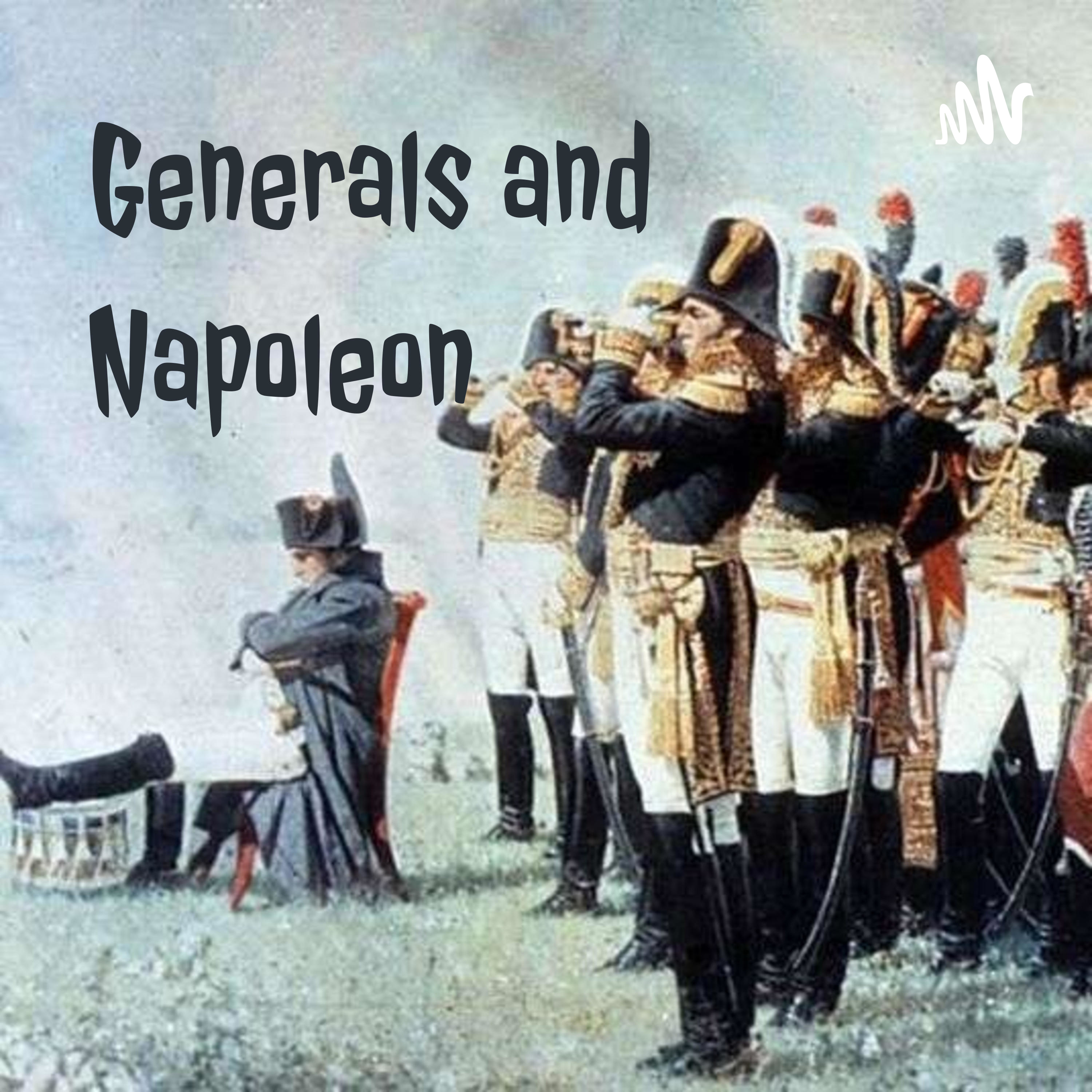
Generals and Napoleon
John W. Viscardo
Shipwrecks and Sea Dogs
Rich Napolitano
French Revolution & Napoleon (Grey History)
Grey History (William Clark)
The Life and Times of Frederick the Great
Alec Avdakov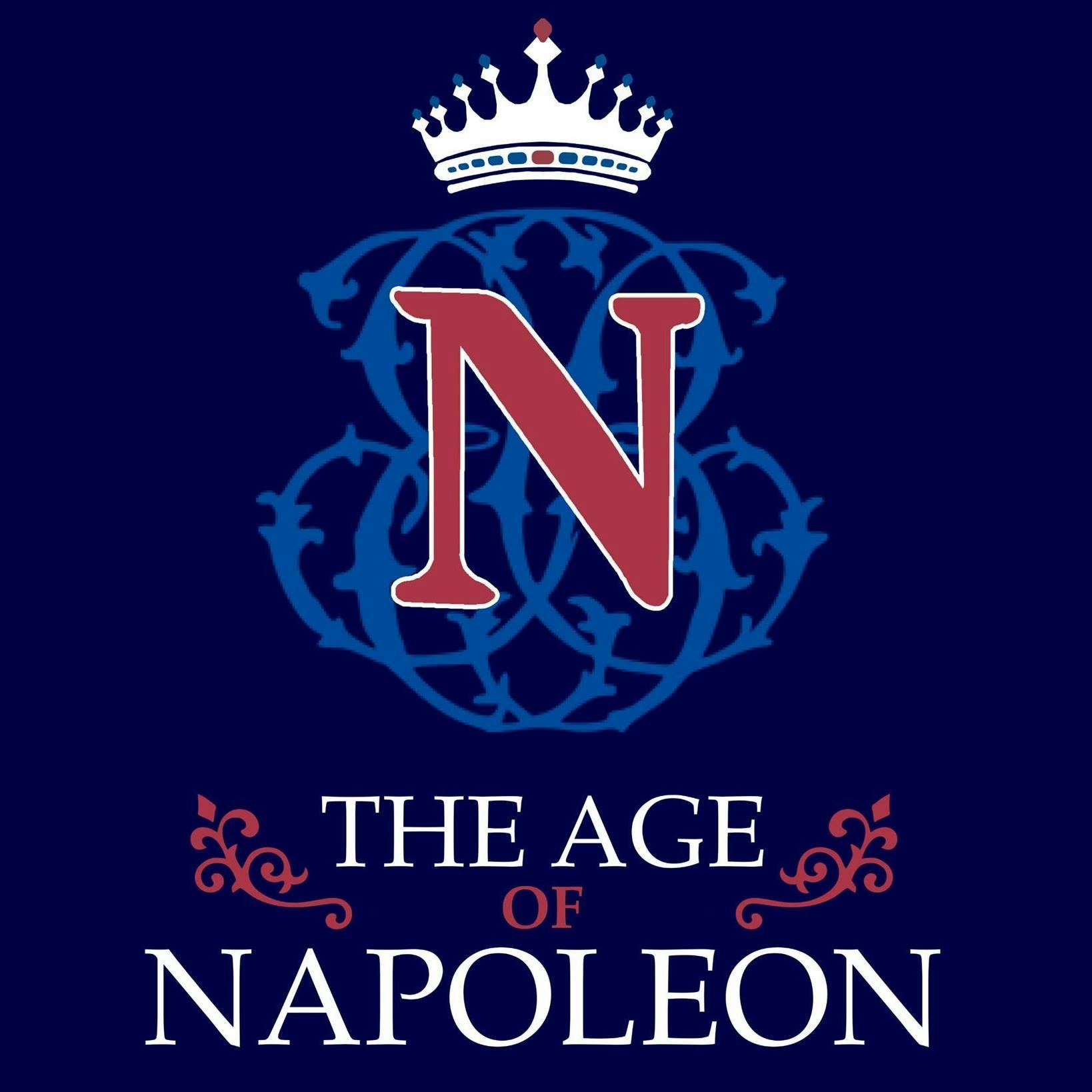
The Age of Napoleon Podcast
Everett Rummage
The Siècle History Podcast
Evergreen Podcasts
The Napoleonic Wars Podcast
Zack White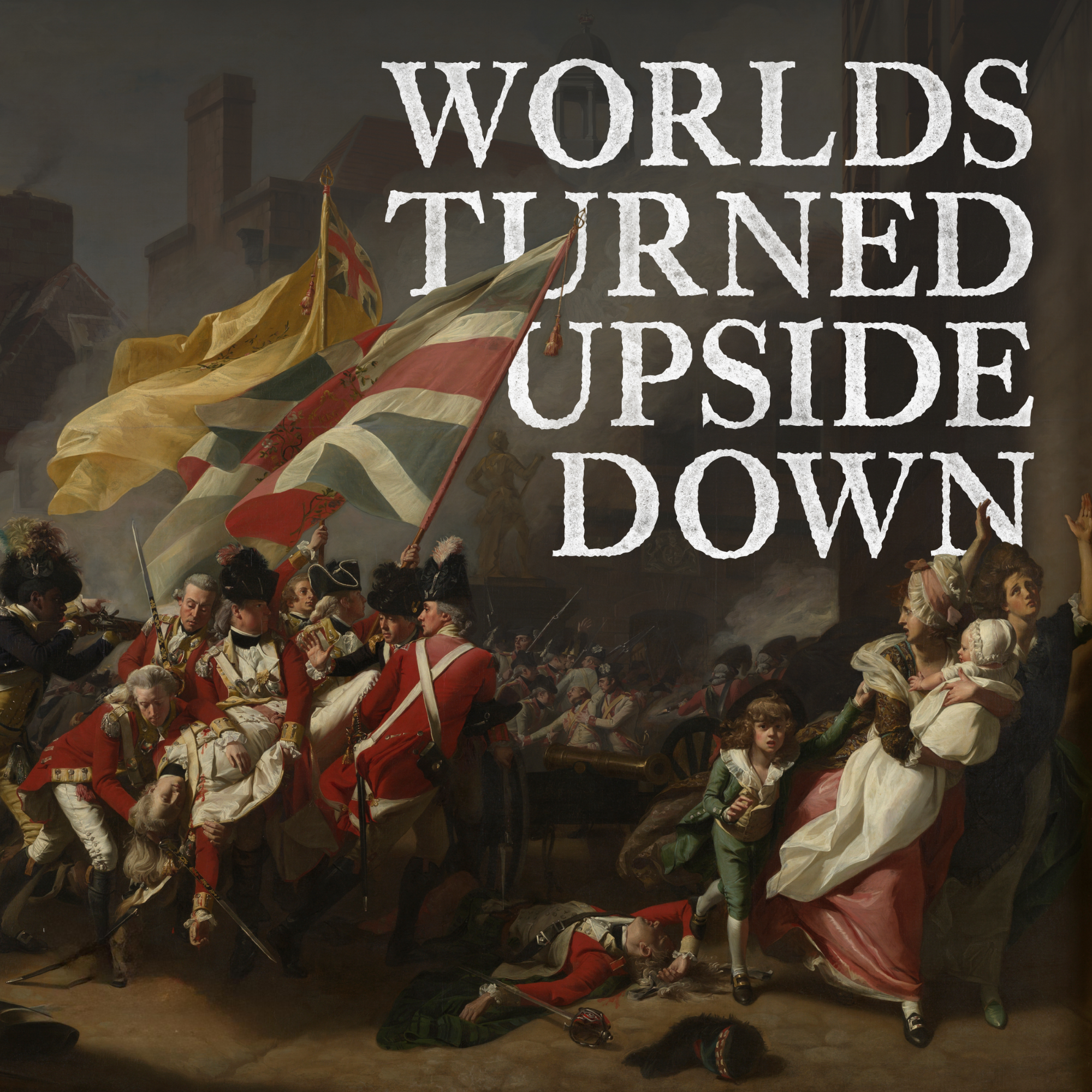
Worlds Turned Upside Down
Roy Rosenzweig Center for History and New Media
Empire-Builders
David Mainayar
Battles of the First World War Podcast
Mike Cunha
New York, Quebec, and The Water Route to the Center of the World
William Matthews
Deep into History
Deep into History
Battle Royale: French Monarchs
Ben Clarke and Eliza Sommers
A History of Japan
Justin Hebert
The French History Podcast
Evergreen Podcasts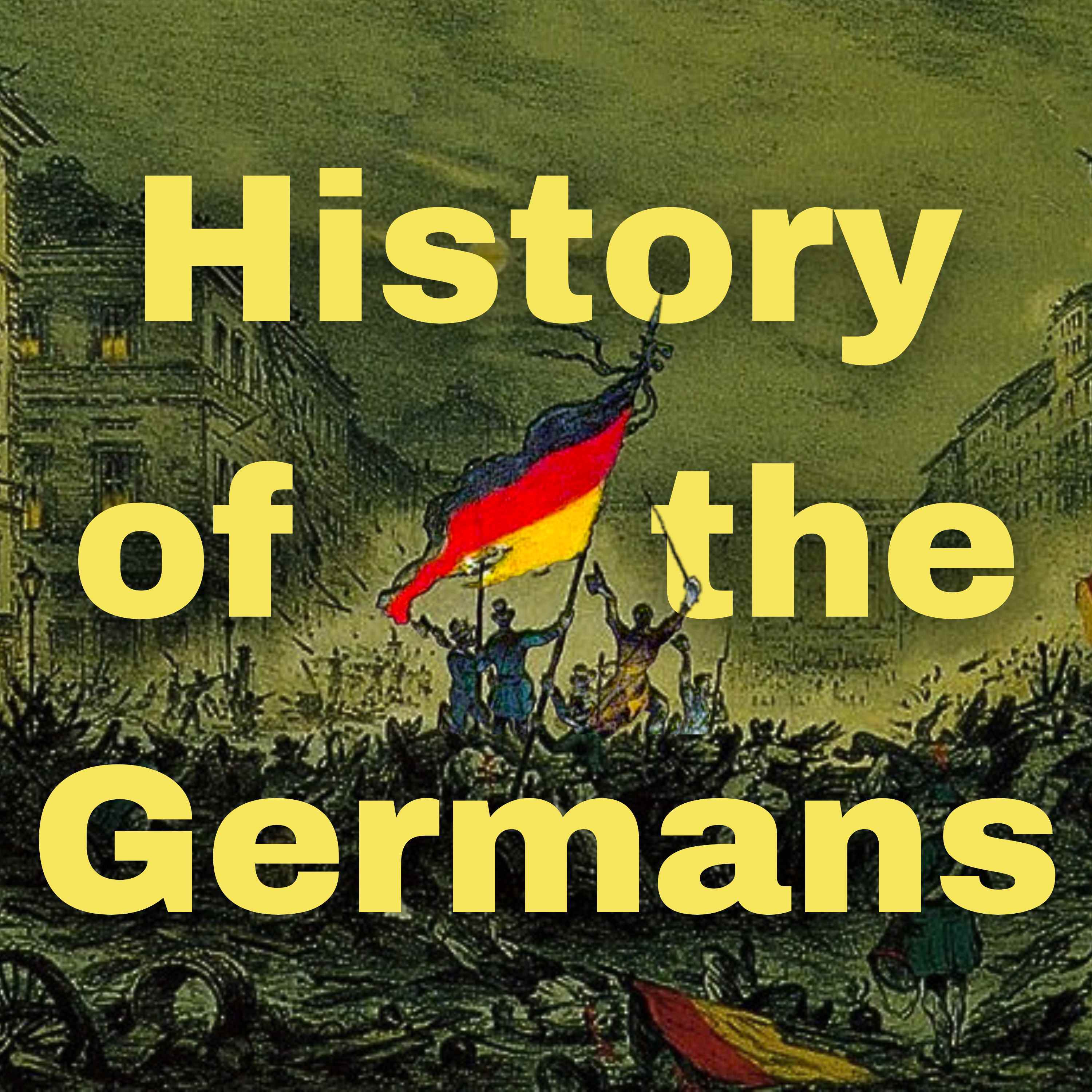
History of the Germans
Dirk Hoffmann-Becking
Half-Arsed History
Riley KnightFrench-Canadian Legacy Podcast
French-Canadian Legacy Podcast
The History of England
David Crowther
Canadian History Ehx
Craig Baird
Hugos There Podcast
Hugos There Podcast
Hugo, Girl!
Hugo Girl

